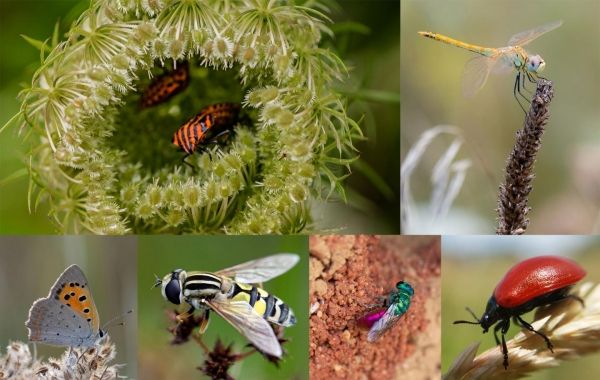It’s no secret that many insects are struggling worldwide. But we could fix these insects’ problems, according to more than 70 scientists from 21 countries. Their road map to insect conservation and recovery is published in Nature Ecology & Evolution this week. From urgent ‘no-regret’ solutions to long-term global comparisons.
The goal is to start insect recovery soon, says initiator Prof. Jeff Harvey from the Netherlands Institute of Ecology (NIOO-KNAW) and Vrije Universiteit Amsterdam. Evidence is growing that all over the world, insect species are suffering from multiple human-induced stress factors: habitat loss and fragmentation, pollution, invasive species, climate change and overharvesting. “As scientists, we want to gather all available knowledge and put it to action together with land managers, policy makers and everyone else involved.”
Predators to pollinators
The roadmap is based on achieving targets over different timescales. More than 70 experts from all continents joined the effort, including book author Dave Goulson and leading scientist Hans de Kroon whose study on insect biomass decline is well-known. “Essentially, we are thinking strategically and this is novel,” explains Harvey. “Now and down the road, all to reverse insect declines.”
Insect abundance, diversity and biomass are frequently under pressure. It affects all functional groups: from predators to pollinators. The scientists state that “insects are vitally important in a wide range of ecosystem services of which some are indispensible for food production and security, as in pest control.”
Read more at Netherlands Institute of Ecology (NIOO-KNAW)
Image: Worldwide insects are suffering from human-induced stress factors. That's the reason why scientific experts from all over the world now propose a road map to insect recovery. (Credit: Netherlands Institute of Ecology (NIOO-KNAW) - Kees van Oers, Perro de Jong & Brechje van Beek)


